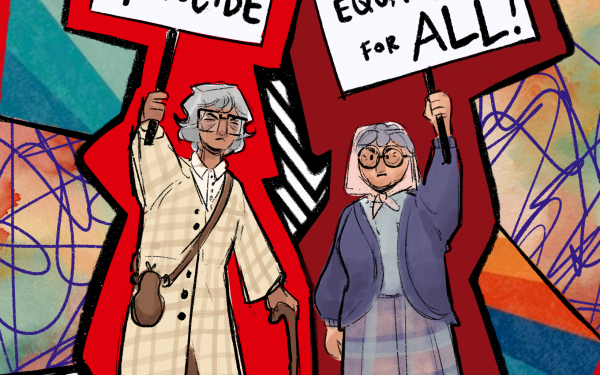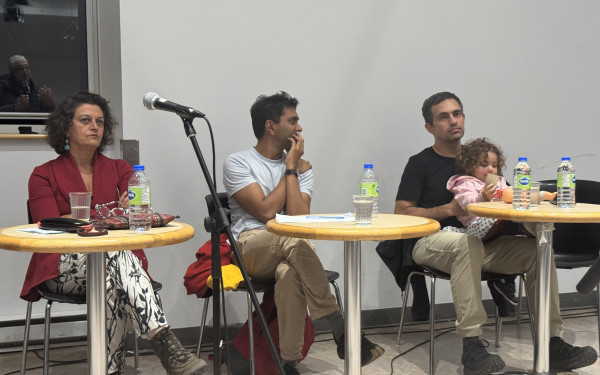The Will To Intervene
Romeo Dallaire Advocates the Use of Force to Prevent Genocide
“The future is yours to shape, not survive.”
That was the message of a speech given by retired Lieutenant-General and current Senator Romeo Dallaire at Concordia’s Hall building on Nov. 4. The speech was part of a promotional effort for Dallaire’s new book, They Fight Like Soldiers, They Die Like Children.
Dallaire emphasized that Canada cannot view itself as a small player on the world stage, noting that it is one of the eleven most powerful nations in the world. Comparing the modern day to World War II, Dallaire said Canada can no longer shirk its duties, or take its cues from countries such as the United States or United Kingdom.
“Although we were one of the three great armies that landed on the beaches on D-Day, not one Canadian general sat at any of the strategic decision bodies of WWII,” he said. “We were considered tactical, the ‘good cousins from across the pond.’ That is not the case today, and we must not let that happen anymore.”
It was the second time in the last few weeks that Dallaire has made an appearance at Concordia. He previously came to speak on Oct. 14 about The Will to Intervene Project, an initiative begun by himself and Concordia history professor Dr. Frank Chalk. Chalk is the head of the Montreal Institute for Genocide and Human Rights Studies.
“Mahatma Ghandi wrote, ‘We must become the change we want to see in this world,’ and we can truly say that of General Dallaire. His life is his message,” said Chalk in his introduction to Dallaire’s speech. “Romeo Dallaire is a messenger with the insight to view child soldiers not simply as exploited, brainwashed and drugged children, but as a weapons system whose prohibition is essential to the betterment of humanity.”
Though the presentation only touched on the topic of child soldiers towards the end, it was part of a larger cross-Canada tour launching Dallaire’s new book, as well as his new Zero Force initiative, which is a grassroots organization which aims to expunge the use of child soldiers from armed conflicts.
“There are now close to 30 conflicts in the world where child soldiers are the primary weapons systems,” said Dallaire. “You cannot find a more sophisticated and sustainable low-technology weapons system in the world. […] [Canada signed] the International Convention on Child Rights, which says you do not recruit, equip, arm, train or use anyone under the age of 18. We signed it in the year 2000, and we have never put it into law.”
Dallaire suggested that in order to eradicate human rights violations such as child soldiers and genocides like the one he witnessed as the head of the U.N.’s mission in Rwanda, fundamental changes in how states relate to each other must take place.
“Sovereignty was essential for the establishment of our nation-states,” he said. “It is a great excuse for people who are rogue to massively abuse their own people.
“We must use new ways to solve the problem. There is no such thing as the peacekeeper in the classic sense. There is no more red card or penalty box. We must be prepared to use force. That’s where we’re at today.”
This article originally appeared in Volume 31, Issue 13, published November 9, 2010.

_1_829_564_90.jpg)





